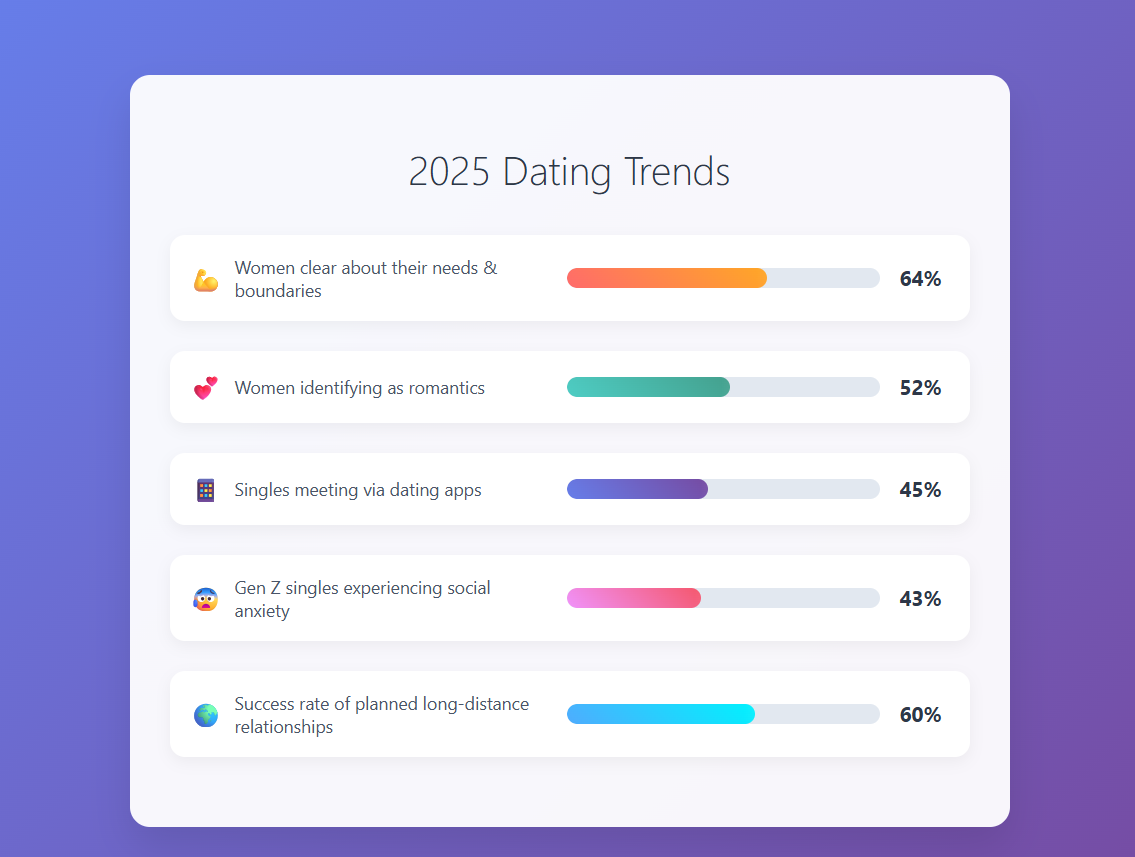You know that knot you get in your stomach sometimes when you’re around your partner?
That moment when you want to say something but you stop yourself because… well, you’re just not sure how they’ll react?
Maybe you’ve told yourself it’s normal. Maybe you think all relationships have that walking-on-eggshells thing going on.
But, I’ve learned after years of working with people in their messiest relationship moments: that feeling? It’s not normal. And it’s definitely not love.
Most people think emotional safety just magically appears when you meet “the right person.” Like some fairy godmother waves her wand and suddenly you can be your authentic self without fear.
Nope. Doesn’t work that way.
Emotional safety gets built. Day by day. Conversation by conversation. Through all those tiny moments when someone either makes you feel seen… or makes you want to hide.
Think about it like this, you know Maslow’s hierarchy? Safety sits right at the foundation because without it, we go into straight survival mode.
And, when your relationship doesn’t feel emotionally safe, you’re basically living in emotional survival mode which can be exhausting.
So instead of wondering “Is this normal?” or “Maybe I’m just being too sensitive”
I want you to ask yourself four questions. As they will tell you everything you need to know about whether you’re actually safe in your relationship.
Question #1: Can I Say How I Feel Without Getting My Head Bitten Off?
This is where emotional safety starts. Can you actually speak your truth?
Because if you’re constantly filtering what you say, dancing around topics, or straight-up afraid of your partner’s reaction… that’s not safety but emotional terrorism.
I see this ALL the time. Someone shares something vulnerable and their partner immediately goes into defense mode. Eye rolls. Silent treatment. “That’s not what I meant!” “You’re being way too sensitive!”
But, these responses shut down connections faster than you can say “relationship problems.”
Let me share my own bit of experience, I was dating this guy, seemed nice enough, and I asked what I thought was a simple question: “Hey, are you still interested in getting to know me? Because I’d really love to keep meeting in person instead of just texting back and forth.”
Simple, right? Yes or no question.
Instead of answering, he launched into this whole speech about being “sooo busy” with work for the next few weeks. Gave me this whole rundown about projects and deadlines and blah, blah, blah.
That response told me everything I needed to know. He couldn’t even answer a direct question!
He was dismissive and used “busy” as his shield. (Side note: can we please retire the word “busy” from our dating vocabulary? Everyone’s got stuff to do, so it’s not an excuse.)
Emotionally safe people respond differently. Even when they’re confused or caught off guard, they stay curious. “Help me understand what you’re feeling.” “I can see you’re frustrated, tell me more.” “That sounds really hard.”
Here’s the thing though, and this is important, it’s not about never having conflict. Conflict’s gonna happen. It’s about feeling safe DURING the conflict. Can you disagree without someone attacking your character? Can you express hurt without being told you’re “too much”?
If no, you’re not in an emotionally safe relationship.
Question #2: Am I Making Myself Small to Keep This Person Around?
When you’re truly emotionally safe, you get to stay YOU. All of you. The messy parts, the opinionated parts, the parts that take up space.
But when safety isn’t there? You start shape-shifting. Over giving. Over-explaining. Walking on eggshells again.
I see people abandon themselves in relationships all the time. They’re constantly checking in: “How’s your day going?” “What are you thinking?” “Are we okay?” But you never hear them say things like, “I’d love to talk more, but I need to handle some stuff first.”
They pour all their energy into managing the other person’s emotions and completely forget they have their own life to live.
This shows up as people-pleasing on steroids. Merging your entire identity with theirs. That exhausting codependent dance where your mood depends entirely on whether they seem happy with you today.
You start thinking: “If I just explain myself better… if I just give a little more… if I just don’t rock the boat… THEN they’ll love me the way I need them to.”
But here’s the brutal truth I tell people: If you have to abandon yourself to be chosen, it’s not love. It’s fear.
Real love says, “I want ALL of you. Even the parts that challenge me.”
Question #3: Can We Actually Talk Through Problems, or Do We Just Pretend Everything’s Fine?
Oh man, this one gets me fired up. Because so many people think they’re in “peaceful” relationships when really, they’re just avoiding everything that matters.
Emotionally safe relationships make room for repair. They don’t let things fester under the surface until someone explodes.
Pretending everything is fine doesn’t avoid conflict. It just delays it and makes it ten times messier when it finally blows up.
When you dismiss conflict, you’re actually dismissing connection. Because all that unspoken resentment? All those little hurts that never get addressed? They pile up like dirty laundry until your relationship stinks and nobody wants to deal with the mess.
I’ve seen couples who bragged about “never fighting.” But when I dug deeper, there was so much silent scorekeeping. So much walking on eggshells. So many things that NEEDED to be said but never were.
Real emotional repair is saying.
“Okay, here’s what actually went down. When you said I misunderstood you, I felt blamed and got defensive. I started thinking I’m not good enough, that I can’t do anything right. What I really need is to feel connected to you again, and that happens when I hear things like ‘help me understand’ instead of ‘you got it wrong.'”
See the difference? No attacking. No defending. Just: here’s what happened, here’s how I felt, here’s what I need.
Emotionally mature people stay curious during these conversations. They ask questions instead of building walls. They take ownership instead of pointing fingers.
If every difficult conversation in your relationship turns into a shutdown or a silent grudge-fest, then it’s not a safe one.
Question #4: What Happens When I Ask for What I Need?
This one’s HUGE. And it separates emotionally safe people from everyone else real quick.
Because boundaries aren’t walls, they’re instruction manuals. They tell people how to love you better. But if someone guilt-trips you, disappears, or gets pissed off when you speak up about your needs… run.
Let me paint you a picture. Second date, right? He suggests meeting at his place for dinner. You’re not feeling it yet, so you say something like: “I’d love to try your cooking sometime, that sounds amazing. I’m just not comfortable coming to your place yet since we’re still getting to know each other. Could we meet at a restaurant instead? I’d really enjoy that.”
Perfect boundary, right? Clear, kind, reasonable.
Here’s what an emotionally UNSAFE person says: “Why would we waste money on a restaurant when I’m spending all this time cooking for you? You obviously don’t appreciate what I’m doing for you. You’re just not a grateful person.”
See that? They just made YOUR boundary about THEIR ego which is a big red flag.
An emotionally safe person says something like: “Oh, absolutely! I totally understand wanting to take things slow. How about that Italian place we talked about? I’ve been wanting to try it anyway.”
See the difference? They don’t make your needs a burden. They make them a roadmap for how to treat you better.
Emotionally safe people lean IN when you set boundaries, not away.
Here’s What This All Comes Down To
Look, these four questions aren’t just for people swiping on dating apps. They work whether you’ve been together for two months or twenty years.
And here’s the beautiful thing about focusing on emotional safety: you don’t need perfection. You need someone who’s willing to do the work.
Someone who takes responsibility instead of getting defensive every time you bring up an issue. Someone who stays curious during conflict instead of shutting down. Someone who doesn’t abandon you emotionally when things get hard.
Because if you don’t feel emotionally safe, you’ll never feel emotionally seen. You’ll spend all your energy managing their reactions instead of sharing who you really are.
And that’s not a relationship.
So start with these four questions. Really sit with them. Notice what comes up in your body when you think about your answers.
And please, don’t ignore what your gut is telling you. You deserve to feel safe in love. Not just comfortable because you’re used to it. Not just grateful because “at least they don’t yell.” Actually, genuinely safe.
Trust me on this: once you know what real emotional safety feels like, you’ll never settle for anything less. And neither should you.


